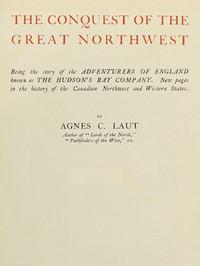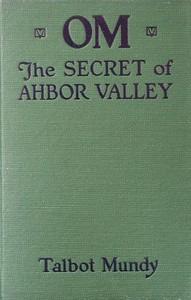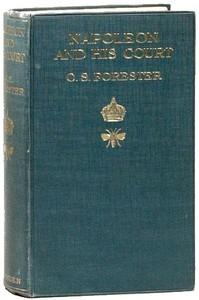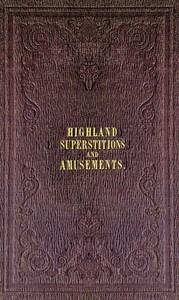|
|
Read this ebook for free! No credit card needed, absolutely nothing to pay.Words: 94270 in 18 pages
This is an ebook sharing website. You can read the uploaded ebooks for free here. No credit cards needed, nothing to pay. If you want to own a digital copy of the ebook, or want to read offline with your favorite ebook-reader, then you can choose to buy and download the ebook.

: The conquest of the great Northwest Volume 1 (of 2) by Laut Agnes C - Hudson's Bay Company; Northwest Canadian; Hudson Bay History@FreeBooksThu 08 Jun, 2023 e end of a GOLDEN THREAD before you can follow the baffling mazes of a discoverer's faith, and these men hadn't faith in anything except a full stomach and a sure wage. After all, their arguments were the same as the obstructions presented against every expedition to the Pole to-day, or for that matter, to any other realm of the Unknown. It was like asking the inventor to show his invention in full work before he has made it, or the bank to pay its dividends before you contribute to its capital. What reason could Hudson give to justify his faith? Standing on the quarter deck with clenched fists and troubled face, he might as well have argued with stones, or pleaded for a chance with modern money bags as talked down the expostulations of the mutineers. They were men of the kidney who will always be on the safe side. As the world knows--there was no passage across the Pole suitable for commerce. There was no justification for Hudson's faith. Yet it was the goal of that faith, which led him on the road to greater discoveries than a dozen passages across the Pole. Faith has always been represented as one of three sister graces; cringing, meek-spirited, downtrodden damsels at their best. In view of all she has accomplished for the world in religion, in art, in science, in discovery, in commerce, Faith should be represented as a fiery-eyed goddess with the forked lightnings for her torch, treading the mountain peaks of the universe. From her high place, she alone can see whence comes the light and which way runs the Trail. Step by step, the battle has been against darkness, every step a blow, every blow a bruise driving back to the right Trail; every blood mark a milestone in human progress from lowland to upland. HUDSON'S SECOND VOYAGE This time, the Muscovy Company commissioned Hudson to look out for ivory hunting as well as the short passage to Asia. Three men only of the old crew enlisted. Hudson might enjoy risking his life for glory. Most mortals prefer safety. Of the three who re-enlisted one was his son. Keeping close to the cloud-capped, mountainous shores of Norway, the boat sighted Cape North on June 3, 1608. Clouds wreathed the mountains in belts and plumes of mist. Snow-fields of far summits shone gold in sudden bursts of sunshine through the cloud-wrack. Fjords like holes in the wall nestled at the foot of the mountains, the hamlets of the fisher folk like tiny match boxes against the mighty hills. To the restless tide rocked and heaved the fishing smacks--emblems of man's spirit at endless wrestle with the elements. As Hudson's ship climbed the waves, the fishermen stood up in their little boats to wave a God-speed to these adventurers bound for earth's ends. Sails swelling to the wind, Hudson's vessel rode the roll of green waters, then dipped behind a cataract of waves, and dropped over the edge of the known world. What wonder that Hudson's ignorant sailors began to feel the marvel of the strange ice-world, and to see fabulous things in the light of the midnight sun? One morning a face was seen following the ship, staring up from the sea. There was no doubt of it. Two sailors saw it. Was it one of the monsters of Saga myth, that haunted this region? The watch called a comrade. Both witnessed the hideous apparition of a human face with black hair streaming behind on the waves. The body was like a woman's and the seamen's terror had conjured up the ill omen of a mermaid when wave-wash overturned its body, exhibiting the fins and tail of a porpoise--"skin very white"--mermaid without a doubt, portent of evil, though the hair may have been floating seaweed. Sure enough, within a week, ice locked round the ship in a vise. The floes were no brashy ice-cakes that could be plowed through by a ship's prow with a strong, stern wind. They were huge fields of ice, five, ten, twenty and thirty feet deep interspread with hummocks and hillocks that were miniature bergs in themselves. Across these rolling meadows of crystal, the wind blew with the nip of midwinter; but when the sun became partly hidden in fiery cloud-banks, the scene was a fairy land, sea and sky shading off in deepest tinges to all the tints of the rainbow. Where the ocean showed through ice depths, there was a blue reflection deep as indigo. Where the clear water was only a surface pool on top of submerged ice, the sky shone above with a light green delicate as apple bloom. Where the ice was a broken mass of an adjacent glacier sliding down to the sea through the eternal snows of some mountain gorge, a curious phenomenon could sometimes be observed. The edge of the ice was in layers--each layer representing one year's snowfall congealed by the summer thaw, so that the observer could count back perhaps a century from the ice layers. Other men tread on snow that fell but yesterday. Hudson's crew were treading on the snowfall of a hundred years as though this were God's workshop in the making and a hundred years were but as a day. Beyond the floating ice fields, the heights of Nova Zembla were sighted, awesome and lonely in the white night, gruesome to these men from memory of the fate that befell the Dutch crews here fifteen years previously. Rowing and punting through the ice-brash, two men went ashore to explore. They saw abundance of game for the Muscovy gentlemen; and at one place among driftwood came on the cold ashes of an old fire. It was like the first print of man's footstep found by Robinson Crusoe. Startled by signs of human presence, they scanned the surrounding landscape. On the shore, a solitary cross had been erected of driftwood. Then the men recalled the fate of the Dutch crew, that had perished wandering over these islands in 1597. What fearful battles had the white silences witnessed between puny men explorers and the stony Goddess of Death? What had become of the last man, of the man who had erected the cross? Did his body lie somewhere along the shores of Nova Zembla, or had he manned his little craft like the Vikings of old and sailed out lashed to the spars to meet death in tempest? The horror of the North seemed to touch the men as with the hands of the dead whom she had slain. The report that the two men carried back to Hudson's boat did not raise the spirits of the crew. One night the entire ship's company but Hudson and his son had gone ashore to hunt walrus. Such illimitable fields of ice lay north that Hudson knew his only chance must be between the south end of Nova Zembla and the main coast of Asia. It was three o'clock in the morning. The ice began to drive landward with the fury of a whirlpool. Two anchors were thrown out against the tide. Fenders were lowered to protect the ship's sides. Captain and boy stood with iron-shod poles in hand to push the ice from the ship, or the ship from the ice. The men from the hunt saw the coming danger and rushed over the churning icepans to the rescue. Some on the ice, some on the ship, with poles and oars and crowbars, they pushed and heaved away the icepans, and ramming their crowbars down crevices wrenched the ice to splinters or swerved it off the sides of the ship. Sometimes an icepan would tilt, teeter, rise on end and turn a somerset, plunging the sailors in ice water to their arm pits. The jam seemed to be coming on the ship from both directions at once, for the simple reason the ship offered the line of least resistance. Twelve hours the battle lasted, the heaving ice-crush threatening to crush the ship's ribs like slats till at last a channel of open water appeared just outside the ship's prison. But the air was a dead calm. Springing from icepan to icepan, the men towed their ship out of danger. No elixir of life, you dreamer; but your mad-brained search for the elixir gave us the secrets of chemistry by which man prolongs life if he doesn't preserve eternal youth! No fate written on the scroll of the heavens, you star-gazer; but your fool-astrology has given us astronomy, by which man may predict the movements of the stars for a thousand years though he cannot forsee his own fate for a day! No North-West Passage to Asia, you fevered adventurers of the trackless sea; but your search for a short way to China has given us a New World worth a thousand Chinas! Go on with your dreams, you mad-souled visionaries! If it is a will-o'-the wisp you chase, your will-o'-the-wisp is a lantern to the rest of humanity! Climbing the rigging to the topmast yardarm, Hudson scanned the sea. His heart sank. His hopes seemed to congeal like the eternal ice of this ice-world. The springs of life seemed to grow both heavy and cold. Far as eye could reach was ice--only ice, while outside the cove there raged a tempest as if all the demons of the North were blowing their trumpets. HUDSON'S THIRD VOYAGE Free books android app tbrJar TBR JAR Read Free books online gutenberg More posts by @FreeBooks
: Om: The secret of Ahbor Valley by Mundy Talbot Lester Leonard Illustrator - India Fiction; Adventure stories@FreeBooksThu 08 Jun, 2023

: Napoleon and his court by Forester C S Cecil Scott - Napoleon I Emperor of the French 1769-1821 Friends and associates; France Court and courtiers History 19th century; Napoleon I Emperor of the French 1769-1821 Relations with courts and courtiers@FreeBooksThu 08 Jun, 2023
|
Terms of Use Stock Market News! © gutenberg.org.in2025 All Rights reserved.






